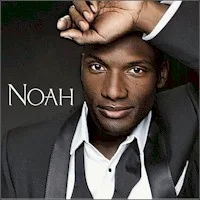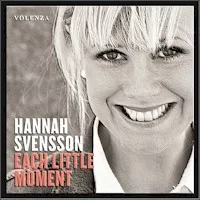Styles: Straight-ahead/Mainstream
Year: 2004
File: MP3@320K/s
Time: 40:45
Size: 93,5 MB
Art: Front
( 3:15) 1. A Love Song
( 3:23) 2. Watergate Blues
( 6:25) 3. Django
( 5:19) 4. Century Rag
( 3:36) 5. No More Weary Blues
(13:24) 6. Suite for Pop...
( 5:20) 7. Hanna's Mood
Year: 2004
File: MP3@320K/s
Time: 40:45
Size: 93,5 MB
Art: Front
( 3:15) 1. A Love Song
( 3:23) 2. Watergate Blues
( 6:25) 3. Django
( 5:19) 4. Century Rag
( 3:36) 5. No More Weary Blues
(13:24) 6. Suite for Pop...
( 5:20) 7. Hanna's Mood
It’s an encouraging sign for all octogenarians when one of their own, a man who has a musical career that spans more than six decades, finally releases an album under his own name at the age of eighty. That man is Percy Heath, and with A Love Song he finally gets to play things exactly as he hears them, which is with a quartet alongside another bassist, allowing Heath plenty of room to solo, on both bass and cello. A Love Song is an engaging album that also gives Heath the opportunity to concentrate on his own originals; four of the seven tracks are penned by Heath, another written by pianist Jeb Patton, with John Lewis’s “Django” and Sir Roland Hanna’s “Century Rag” thrown in for good measure.
Brother Tootie Heath (drums) and Peter Washington (bass) provide a warm background on this collection of mainstream tunes. But the two stars of the show are Patton, a young pianist with a penchant for the romantic as demonstrated on his own “Hanna’s Mood," and, of course, Percy Heath, whose bass playing completely defines the session. Opening with the solo title track, Heath immediately demonstrates the warm tone, lyrical sense and impeccable intonation that has made him such an in-demand artist on over three hundred recordings, including seminal works with Cannonball Adderley, Miles Davis, Dizzy Gillespie and, of course, his group of over forty years, the Modern Jazz Quartet. And, while he has spent most of his time in the mainstream, it is interesting to note that he has always been prepared to stretch his boundaries, playing on more outside recordings including John Coltrane’s Avant Garde. But it is in the mainstream where he has made his name, and that is where he concentrates his effort on A Love Song.
While Heath’s “Watergate Blues” has been recorded several times before, this is the first time that it has been played with the bass stating the melody. In fact, Heath’s bass is the predominant voice on the whole recording; while Patton gets a few choice solos, it is Heath’s voice that is the essence; his reading of “Django” is tender; his playing on “No More Weary Blues” vibrant, buoyant. The centrepiece of the recording is “Suite For Pop,” a four-movement suite dedicated to Heath’s father. From the more dark and brooding “Prelude” and “Lament,” which reflect Heath’s sadness at his father’s passing, emerge “Rejoice” and “Celebration,” which do just that; Heath is a master at conveying emotions in his writing and playing.
A Love Song finally places Heath, a performer who has literally influenced generations of bassists, front-and-centre. With a mainstream program that is as revealing as it is fun, as passionate as it is intelligent, Heath proves why he has, in the course of over sixty years, remained in such high demand. He combines musical integrity with a purely playful nature that makes him a joy to hear. And at eighty years old and still going strong, we can only hope that he’ll have more opportunities to correct the wrong of a lifetime and record more as a leader.~ John Kelman http://www.allaboutjazz.com/a-love-song-percy-heath-review-by-john-kelman.php
Personnel: Percy Heath (bass, cello), Jeb Patton (piano), Peter Washington (bass)
Personnel: Percy Heath (bass, cello), Jeb Patton (piano), Peter Washington (bass)
A Love Song




















